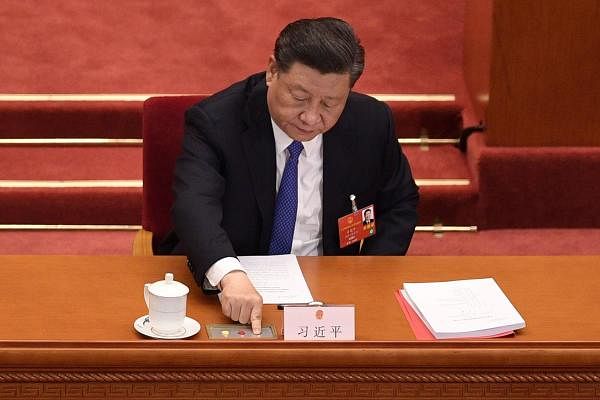The Chinese Parliament’s approval for a controversial new security law for Hong Kong has far-reaching implications for the latter’s democratic freedoms and autonomy. The law is aimed at “splittism, subversion of State power, terrorism or interference by foreign countries or outside influences” in the city. Hong Kong’s pro-democracy activists fear that as in China, this law will be misused to silence their criticism of the Chinese government and to crush dissent. Besides, by bypassing the Hong Kong legislature to enact the new security law, Beijing is violating the “one country, two systems” principle that China and the UK agreed upon in 1997, when the former British colony was handed over to China. That principle guarantees Hong Kong civic freedoms and an independent judiciary, while being a part of China. By imposing a security law on Hong Kong, China has undermined its autonomy.
Since March last year, Hong Kong has been roiled in unrest over its government’s plans to enact extradition legislation that would allow suspected criminals to face trial in the Chinese mainland. It triggered massive protests. Although Hon Kong Chief Executive Carrie Lam eventually suspended and even withdrew the controversial bill, these gestures failed to quell the protests as they had snowballed by then into a larger mass movement for democratic reform. Protesters refused to be cowed down by the government’s use of violence. The crisis caused immense embarrassment not only to the Carrie Lam government but also to Beijing. Successive governments in Hong Kong had attempted to enact a national security law as per Beijing’s wish, but with little success. Rattled by the massive anti-China sentiment on display during the protests last year, Beijing did not want to take any chances. Hence, the decision that it would enact the law for Hong Kong.
China appears to be taking advantage of the world’s preoccupation with the Covid-19 pandemic to press ahead with the controversial legislation. It is perhaps hoping that Western countries, which have usually supported pro-democracy protests in Hong Kong, will back off and mute their criticism of Beijing. Besides, Beijing will be hoping that public fears of contracting the coronavirus will keep Hong Kong’s residents from pouring into the streets to protest its imposition of laws on the territory. However, protests have already begun. A stable Hong Kong is important for China, especially for its post-pandemic economic recovery. The city is a global commercial and financial hub, which plays a key role in attracting investment into China. Renewed protests in Hong Kong could make things difficult for Beijing.
